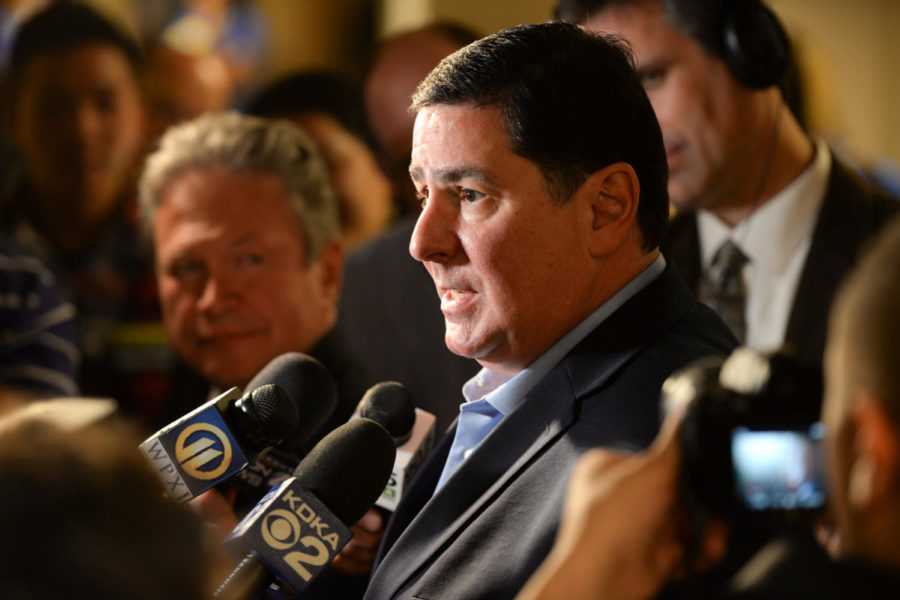Mayor Bill Peduto is gazing into Pittsburgh’s future as a possible home for Amazon’s HQ2 wearing what appears to be a pair of rose-colored glasses. The proposition of a $5 billion economic bolster sits untouched in the distance, a prize Pittsburgh and 19 other cities are ruthlessly racing toward — but somewhere between the 50,000 created jobs and robust economic boost, there is more than enough room for error.
Amazon is looking for a city that’s “excited to work with us and where our customers, employees, and the community can all benefit” — and in a recent interview, Peduto touted Pittsburgh as the perfect landing spot for the major world corporation.
“If they want to really be able to show to the world how their investment can benefit a community in the whole,” Peduto told Geekwire. “If they want to be able to raise up the underserved and those that have been given no ladder of opportunity for a new economy, then they would look at Pittsburgh beyond any other city — because we did it.”
While being the chosen city — out of 238 original bidders — comes with more than a few big perks, it could also unlock a wide economic disparity and increase the already prevalent gentrification hitting Pittsburgh neighborhoods one at a time.
This City has seen its fair share of blue-collar displacement in neighborhoods like Lawrenceville, a working-class neighborhood that’s transformed into streets lined with upscale restaurants and pricey homes, and East Liberty, where low-income, affordable housing gave way to the installation of a Whole Foods store.
An Amazon headquarters could easily make Pittsburgh continue to push low-income earners from their houses and neighborhoods. Depending on where they plunk down the more than 8-million-square-foot building space, it could shake the very neighborhoods fighting to stay afloat.
Peduto should have ample reason to proceed with caution, economically, because the relationship Amazon has with its current headquarters in Seattle has continued to deteriorate.
The city is dealing with an increasing affordable housing issue and socioeconomic gap, “illustrated by tech workers zipping to the office in electric cars past people sleeping on benches and under bridges,” according to GeekWire.
Though Peduto seems to be cognizant of the potential pitfalls of a Pittsburgh headquarters, his optimism surrounding Pittsburgh’s competence remains strong.
“We were Seattle in 1921,” he said, “where the disparity between the workers and those that owned and operated the mills was the greatest disparity in American history. We organized in the mines and the mills. We not only built this country, we built the middle class. And we went through the hard lessons.”
Peduto may trust Pittsburgh’s abilities, but his unwavering confidence in Amazon and CEO Jeff Bezos’ positive intentions for its new headquarter’s city is another beat entirely.
The veil of secrecy covering Amazon’s conversations with potential cities means a lot of uncertainty for Pittsburgh citizens about what life in a headquarters city would actually entail.
But Peduto’s not worried about any ill intentions, nor is he worried about any exploitation Pittsburgh could experience — after all, he claims Bezos’ political opinion lines up completely with that of the typical person in western Pennsylvania.
Peduto is referencing Bezos’ 2013 purchase of The Washington Post — a newspaper he reads daily — and seems to assume Bezos’ views directly influences the paper.
Pittsburgh is still one of 20 possible cities for Amazon’s headquarters — but if the Steel City wins the bid, Peduto would do well to pay attention to the ways in which this City could suffer from hosting Amazon before we actually do.


